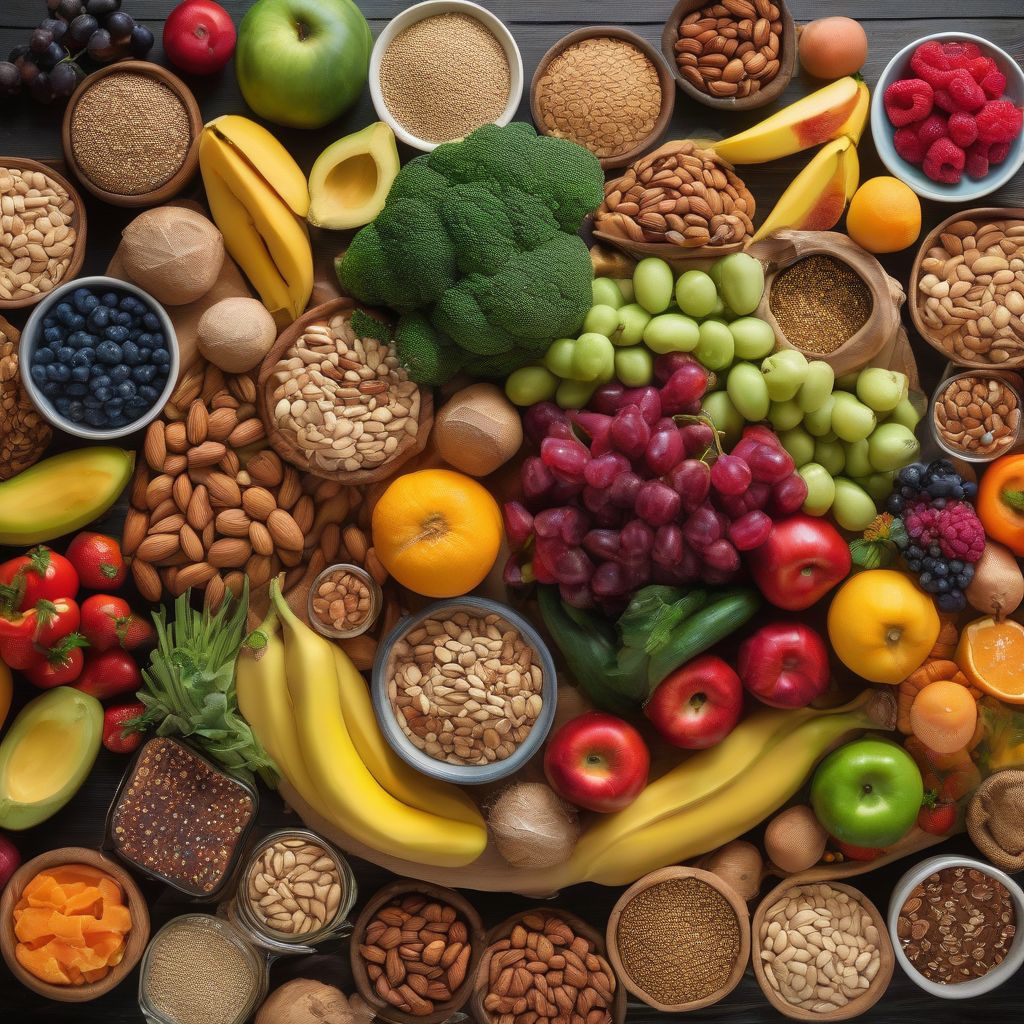Have you ever wished for a magic spell to instantly improve your health and boost your energy? While there’s no quick fix, shifting to a whole foods diet can be the closest thing to that magical transformation.
As a nutritionist and meal prep coach, I’ve spent years helping people unlock the incredible benefits of eating whole, unprocessed foods. And let me tell you, the results are truly life-changing! More energy, better sleep, improved digestion, and even a boost in mood are just a few of the amazing things my clients experience.
This comprehensive guide will equip you with practical tips to seamlessly integrate whole foods into your daily life. We’ll dive deep into what whole foods actually are, why they’re so beneficial, and how you can make this way of eating a sustainable part of your routine. Get ready to feel your absolute best!
Understanding the Power of Whole Foods: What Makes Them So Incredible?
Simply put, whole foods are as close to their natural state as possible. Think vibrant fruits and vegetables bursting with color, hearty whole grains, lean proteins, nuts, seeds, and legumes. These nutritional powerhouses are packed with vitamins, minerals, antioxidants, and fiber – all the good stuff your body craves to thrive!
Here’s why making the switch to whole foods is a game-changer:
- Increased Energy and Vitality: Say goodbye to those afternoon slumps! Whole foods provide sustained energy release, keeping you fueled throughout the day.
- Weight Management: Fiber-rich whole foods keep you feeling fuller for longer, naturally reducing cravings and aiding in weight management.
- Improved Digestion and Gut Health: The fiber in whole foods acts like a superhero for your gut, promoting healthy digestion and a thriving microbiome.
- Reduced Risk of Chronic Diseases: Studies show that diets rich in whole foods can lower the risk of heart disease, type 2 diabetes, and certain types of cancer.
- Enhanced Mood and Mental Clarity: A healthy gut is directly linked to a healthy mind! Whole foods nourish your brain, supporting cognitive function and emotional well-being.
Practical Tips for Transitioning to a Whole Foods Diet:
1. Crowd Out Processed Foods with Colorful Produce:
Make fruits and vegetables the stars of your plate! Aim for at least five servings a day. Get creative with colorful salads, roasted veggies, smoothies, or simply snacking on your favorites.
Expert Tip: Keep pre-cut fruits and veggies on hand for easy snacks and meal prep.
2. Choose Whole Grains Over Refined Options:
Swap white bread, pasta, and rice for their fiber-rich counterparts like quinoa, brown rice, oats, and whole-wheat bread. These complex carbohydrates provide long-lasting energy and support healthy blood sugar levels.
Expert Tip: Explore different types of whole grains and experiment with new recipes to keep things interesting!
3. Prioritize Lean Protein Sources:
Include lean protein in every meal to support muscle growth, repair, and satiety. Opt for fish, poultry, beans, lentils, tofu, tempeh, and low-fat dairy products.
Expert Tip: Try grilling, baking, or poaching your protein sources for healthier cooking methods.
4. Don’t Fear Healthy Fats:
Healthy fats are essential for hormone balance, brain function, and nutrient absorption. Incorporate avocados, nuts, seeds, olive oil, and fatty fish like salmon into your diet.
Expert Tip: Add a tablespoon of chia seeds or ground flaxseeds to your smoothies or yogurt for a boost of omega-3 fatty acids.
5. Hydrate Wisely:
Water is crucial for overall health and plays a vital role in digestion, nutrient absorption, and waste removal. Aim to drink plenty of water throughout the day.
Expert Tip: Jazz up your water with slices of lemon, cucumber, or fresh mint leaves.
6. Cook More at Home:
When you prepare your meals, you have complete control over the ingredients. This allows you to make healthier choices and avoid hidden sugars, unhealthy fats, and excessive sodium often found in processed foods.
Expert Tip: Set aside dedicated time for meal prep each week. Cook in batches and store leftovers in portioned containers for easy grab-and-go meals.
7. Read Food Labels Carefully:
Don’t be fooled by marketing claims! Become a savvy label reader and pay close attention to serving sizes, added sugars, sodium content, and unhealthy fats.
Expert Tip: Aim for products with short ingredient lists that you can understand.
8. Make Gradual Changes:
Transitioning to a whole foods diet is a journey, not a race. Start by making small, sustainable changes to your eating habits.
Expert Tip: Begin by swapping one processed food item for a whole food alternative each week.
9. Listen to Your Body:
Pay attention to how different foods make you feel. Everyone’s body is unique, so tune in to your own hunger and fullness cues.
Expert Tip: Practice mindful eating by slowing down, savoring each bite, and avoiding distractions during meals.
10. Celebrate Your Successes:
Acknowledge and celebrate your accomplishments along the way. Every step you take towards a healthier lifestyle is worth celebrating!
Expert Tip: Treat yourself to non-food rewards like a massage, a new workout outfit, or a weekend getaway.
 Whole Foods Platter
Whole Foods Platter
Whole Foods: Your Path to Long-Term Health and Wellness
Embracing a whole foods diet is one of the most powerful gifts you can give yourself. It’s not about deprivation or perfection; it’s about nourishing your body with real, unprocessed foods that fuel your well-being from the inside out.
Remember, small changes can lead to remarkable results over time. As you incorporate more whole foods into your diet, you’ll experience increased energy, improved digestion, a stronger immune system, and a greater sense of overall well-being.
Are you ready to unlock the incredible benefits of a whole foods diet? Start by making one small change today, and gradually build upon your successes. You’ve got this!
For more tips on improving your well-being, check out our articles on The Benefits of a Plant-Based Diet for Health and Tips for Improving Your Mental Wellness Daily.
Let’s embark on this journey together! What’s one step you can take today to incorporate more whole foods into your diet? Share your thoughts in the comments below!
[amazon bestseller=”whole foods cookbook”]
